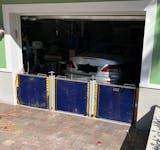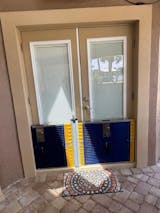Floods are typical in Asian countries; just last June, citizens of Beijing, China, experienced one after a river hit a 100-year high. But while people there have likely already adapted, those moving to this continent might still have to adjust. Nonetheless, buying a lovely home in a new country is very rewarding, but it pays to know how to be prepared when the property happens to be in a flood zone.
The Pros And Cons
One of the good things about moving to a flood zone in Asia is that property prices can be very affordable. Sellers do this to entice potential buyers who are hesitant due to flood occurrences. Another advantage is the abundance of water supply and appropriateness of land for planting as flood recharges groundwater and fertilizes the soil. Moreover, residential areas are usually near nature, so people have quiet places to visit and unwind. Furthermore, one of the downsides of living in a flood-prone area is cleaning the surroundings after floods. This includes washing away mud, sweeping tiny litter, and removing odor left by dirty water. Of course, the property can be affected; but regular concrete houses will be just fine afterward.

What Precautions Can You Take?
Flooding is practically certain, but taking precaution can minimize its effects on people and properties. First, it's best to get a home, preferably a two-story house, outside the flood hotspots. For instance, in Bangkok, Thailand, urban areas are where most floods occur due to hindered drainage systems and water channels. Next, applying for insurance is advisable and will give you peace of mind. Property coverage is easily accessible in Asia, and providers only require a few IDs and documents. Moreover, it's imperative to know the country's alert system, like Japan's five levels of warning, to stay safe or updated. Supply kits with power banks are also worth preparing in case of a power outage or other scenarios. Placing appliances and furniture on elevated surfaces and building a fence will reduce property damage, but if they do get wet, you can look into water damage restoration services, especially for vintage items. It’s especially important to do this as soon as possible to avoid any further complications that can arise due to water damage.
What To Do After Flooding Events?
The insurance provider should be contacted after a flooding event. Doing so will settle matters quickly and help the owner avoid any hassle. But if there is no coverage, it's best to check the house for cracks, wet walls, or other issues and fix them as soon as possible. However, if repairs are unnecessary, one should instead clean the surroundings. This will remove odor, prevent rusting on metals, and discourage mold/mosquito growth. Lastly, make sure to restock supply kits and recharge power banks if they were used during the flood.
Living in a house in a flood zone isn't as unideal as many people think. The water will only rise sometimes, and typically, it won't go higher than the ankle. One will simply have to prepare and understand certain things, like the topics this article covered. And once everything is settled, there's no reason not to go ahead and buy a lovely home in Asia.
Flood Barrier Door Dam - Ultimate Flood Gate

€779,00
DAM EASY® FLOOD GATE - DOOR DAM Floods are becoming more common around the world. What was once a 100-year phenomenon is now a seasonal trend that homeowners must deal with. That’s EXACTLY why you need this Dam Easy Flood… Read More


















